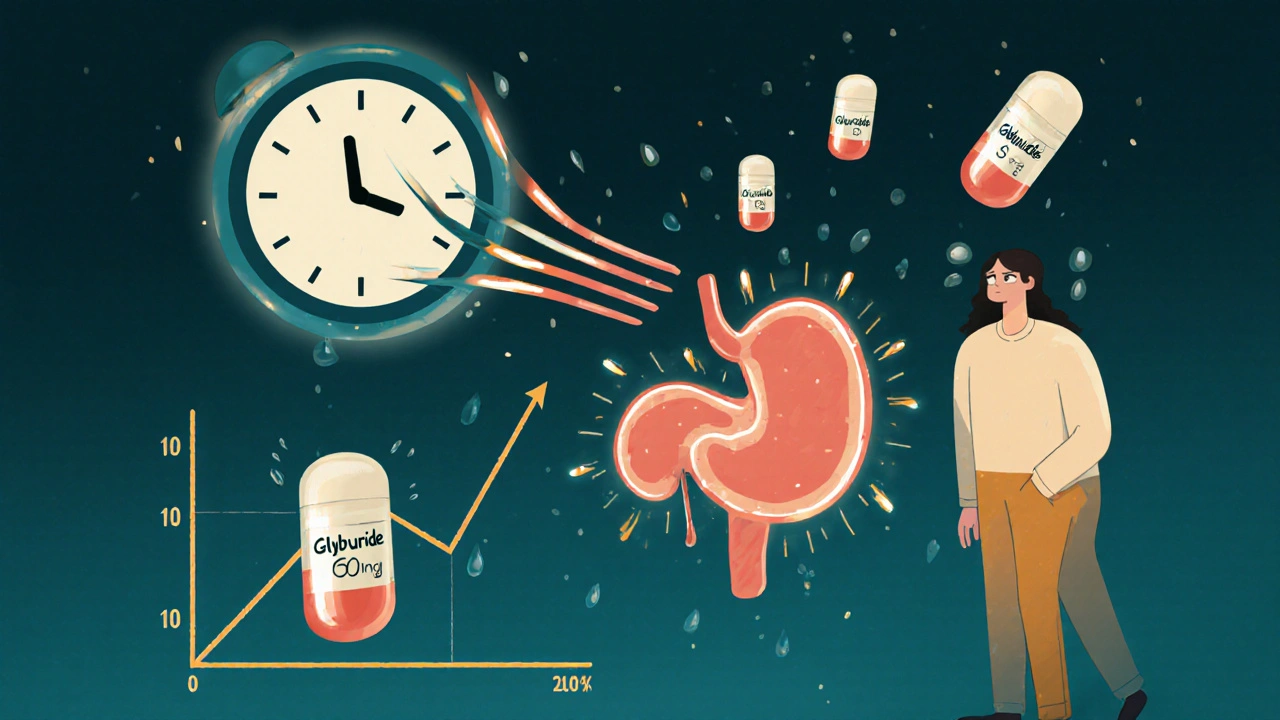When your blood sugar drops too low, your body sends out warning signals—sweating, shaking, confusion, even a racing heart. This is hypoglycemia, a condition where blood glucose falls below 70 mg/dL, often due to medication, skipped meals, or excessive insulin. Also known as low blood sugar, it’s not just a nuisance—it can be dangerous if ignored. Many people associate it with diabetes, but it can also happen in non-diabetics, especially when taking certain drugs like insulin, sulfonylureas, or even some antibiotics and heart medications.
Insulin, a hormone that lowers blood glucose, is the most common cause of hypoglycemia in people with diabetes. Too much insulin, or taking it without eating enough, sends blood sugar crashing. Sulfonylureas, a class of oral diabetes drugs that force the pancreas to release more insulin, carry the same risk. Even beta-blockers, used for high blood pressure and heart conditions, can hide the warning signs of low blood sugar, making it harder to catch in time. And while rare, some antibiotics, quinine, or even excessive alcohol can trigger it in people without diabetes.
Hypoglycemia doesn’t always come with obvious symptoms. Some people, especially those with long-term diabetes, develop something called hypoglycemia unawareness—where their body stops sending alerts. That’s why checking your blood sugar regularly matters, even if you feel fine. If you’re on any medication that affects glucose, it’s not enough to just know the name—you need to understand how it works, what foods balance it, and when to act. The posts below cover real cases: how antidepressants and chemotherapy can indirectly affect blood sugar, how smoking changes drug levels and triggers unexpected lows, and how misreading a prescription label can lead to dangerous dosing errors. You’ll also find guides on managing side effects from diuretics, painkillers, and hormonal treatments that might be silently lowering your glucose. This isn’t just about diabetes—it’s about knowing how the medicines you take interact with your body’s natural balance.
Posted by
Jenny Garner
11 Comments

Sulfonylureas can cause dangerous low blood sugar, especially glyburide. Learn which drugs carry the highest risk, how to prevent hypoglycemia, and safer alternatives that can cut your risk by more than half.
read more